- Category
- War in Ukraine
The Resilient City of Kharkiv Stands, Despite Three Months of Constant Russian Shelling
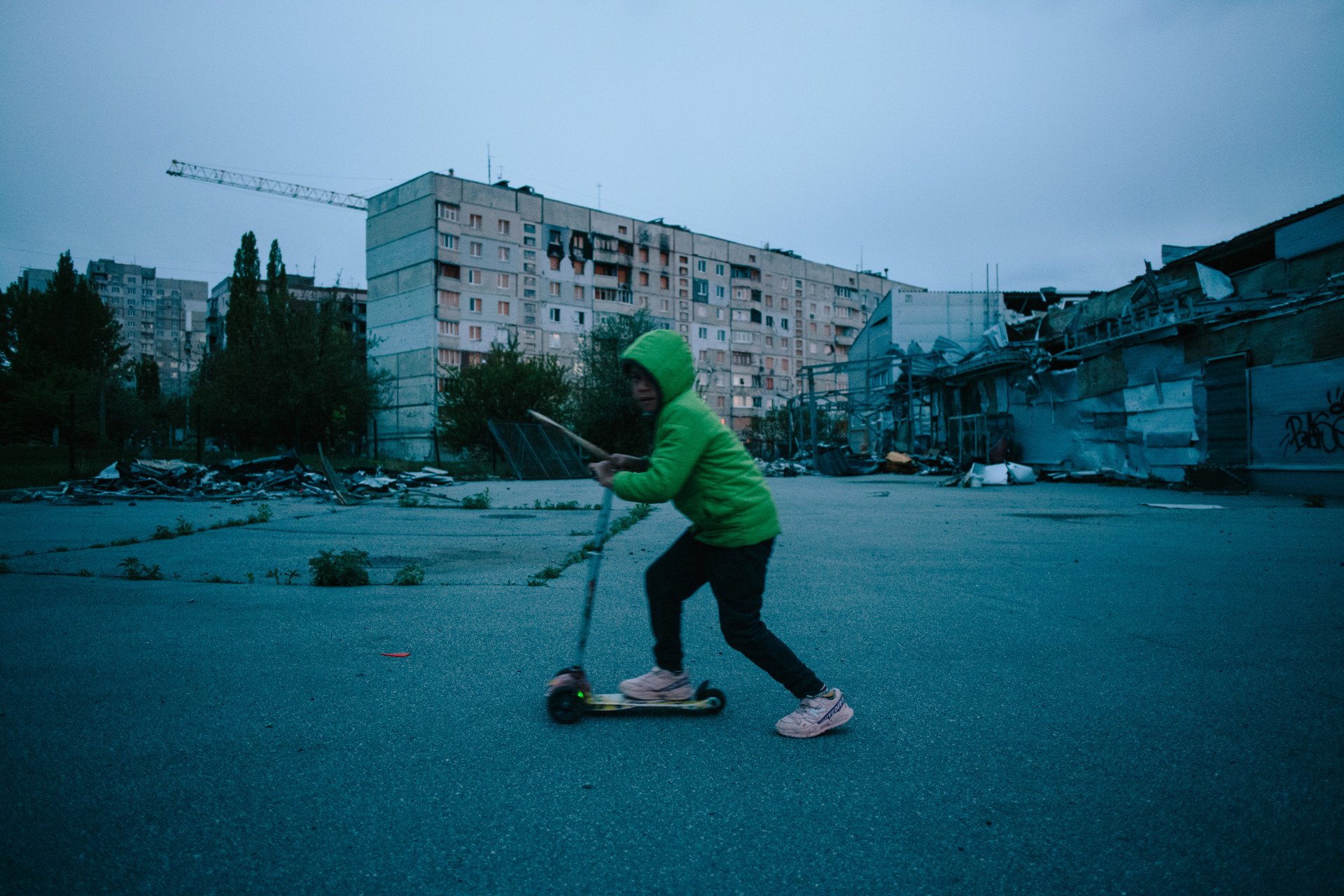
Russia has been shelling Kharkiv almost daily for the third month in a row. But the city is not going to surrender.
On May 25th, during the day, a targeted strike by Russian aviation hit a large department store for construction materials in Kharkiv. It was a weekend, and so the building was filled with people. Russia had clearly planned this attack. At the time of writing, it is being reported that 16 people have been killed, over 10 are missing, and another 30 have been injured and are in the hospital.
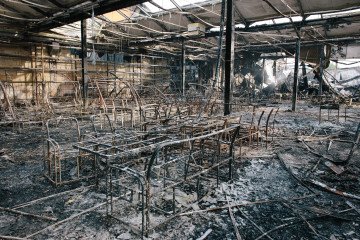
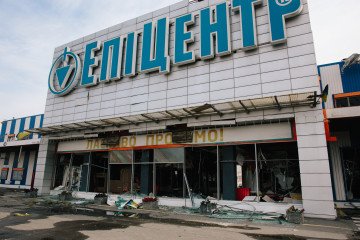
The day before this attack, Russian aviation struck one of Ukraine's largest printing houses. Seven employees were killed. 50,000 books were destroyed.
Since the beginning of May, our team has visited Kharkiv three times. We worked in the city and in areas where Russia opened a new front—in Vovchansk and Lyptsi. What did we see? A city that is shelled almost daily—yet continues to live.
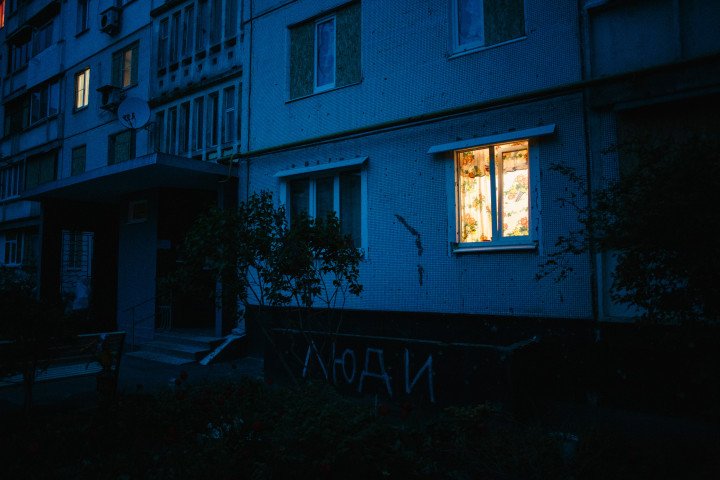
In a conversation with a local journalist who witnesses the situation daily—not just briefly while on assignment—we hear: "Kharkiv residents are not the ones who will give up easily." Russia’s logic is obvious—to destroy the city, break the spirit of local residents, and provoke a crisis so that the townspeople would pressure the Ukrainian authorities to start peace negotiations on any terms. "They won't succeed. All they will get is even more hatred towards them," adds our interlocutor.
In the city, people know exactly what needs to be done to stop this—drive away the enemy aviation that is shelling Kharkiv. For this to happen, American and European partners need to give Ukraine permission to strike Russian territory with Western weapons. Sweden, for example, has already allowed this, as have some other countries. Next, Ukraine needs to strengthen its air defense. Two Patriot systems are needed to cover a city of over 1 million people.
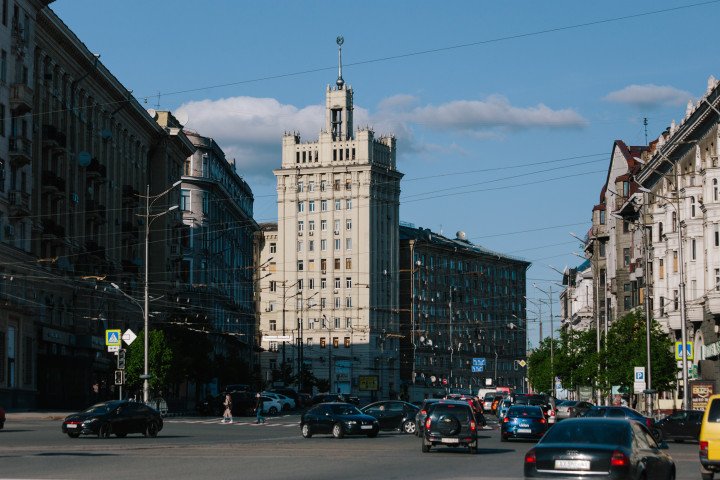
Interestingly, however, discussions about the city's defense are not the main topic when locals meet. Our team often likes to visit a restaurant that serves Ukrainian cuisine called “Triptich.” The cuisine here is local but adapted in a modern way. At lunch, there are practically no seats on the summer terrace. Accidentally, but occasionally, we overhear conversations at neighboring tables. Do you know what they talk about? The same problems of a peaceful life: relationships, work, and some household issues.
"There are no other people who love their city like Kharkiv residents," a friend who is not a native Kharkiv resident but has lived there for seven years tells me.
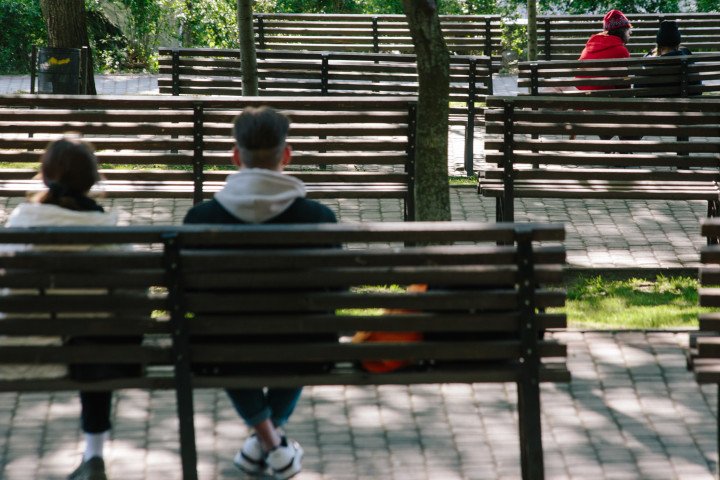
"How do you recognize Kharkiv residents? In the first 10 minutes of walking around the city, they will either tell you themselves or look around and say that there are more trash bins in the city than in any others—and it's cleaner," laughs another acquaintance who has lived there for many years. There’s a special love for the city that is hard to understand for those visiting.
And it's great that these are not just words. At the beginning of the full-scale invasion in February 2022, many people left Kharkiv, and the population significantly decreased. But many volunteers and city defenders remained. Despite all attempts to capture or encircle the city, the Russian army could not do it. The enemy was stopped, and six months later, they were pushed back, almost completely liberating the whole region.
In the summer of 2023, I went to the city to shoot a documentary episode about how Kharkiv lives. What did I see? Full parks of people, no parking spaces, crowded restaurants. The city, which for a moment became almost deserted, came back to life: over 1.3 million people lived there. Even today, when you walk around the city, you see many people on the streets. There are children, young people, couples on dates, girls with flowers, and parents entertaining their little ones. Life in Kharkiv doesn't stop for a moment.

Of course, there are problems. On the door of “Triptich,” it says: problems with electricity, we might take a bit longer to cook.
“That's just a joke. In Kharkiv, everything is brought on time,” my journalist friend reacts somewhat sharply. He doesn't want it to seem like something is wrong in the city. And he’s right: the service time is indeed the same as in any other city in Ukraine.
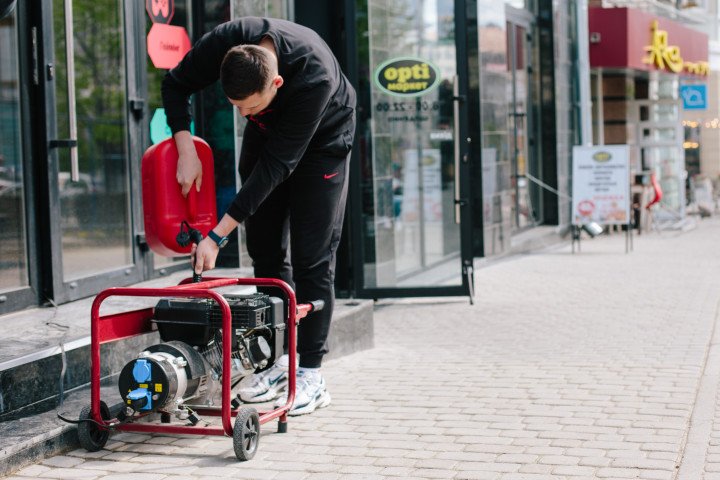
But there really are problems with electricity. Russia has bombed the entire region's energy infrastructure. There are outages and interruptions, and the authorities are thinking of a plan for the winter. But locals have already adapted to this. A shop assistant in a small store near the entrance hurries us when we buy snacks for the road: "Guys, hurry up, two minutes and it will be turned off, the cash register will turn off." She says it with such care in her voice that you want to buy everything in that store.
In the morning, we accidentally go into a coffee shop 15 minutes before opening. "It's okay, you are our guests, we will feed you," says the girl at the counter. I don't know if it was always like this in Kharkiv, but now it only evokes admiration, because its residents are like this everywhere.
Of course, due to constant shelling, some residents will leave again or at least consider this option. And that's normal: it's about their own safety and life. But this is not at all the story that the Kremlin's top brass hopes for: the city will not surrender—neither the troops nor those who live in it. Kharkiv will stand strong.
-29a1a43aba23f9bb779a1ac8b98d2121.jpeg)

-554f0711f15a880af68b2550a739eee4.jpg)

-f88628fa403b11af0b72ec7b062ce954.jpeg)

-605be766de04ba3d21b67fb76a76786a.jpg)
-0c8b60607d90d50391d4ca580d823e18.png)